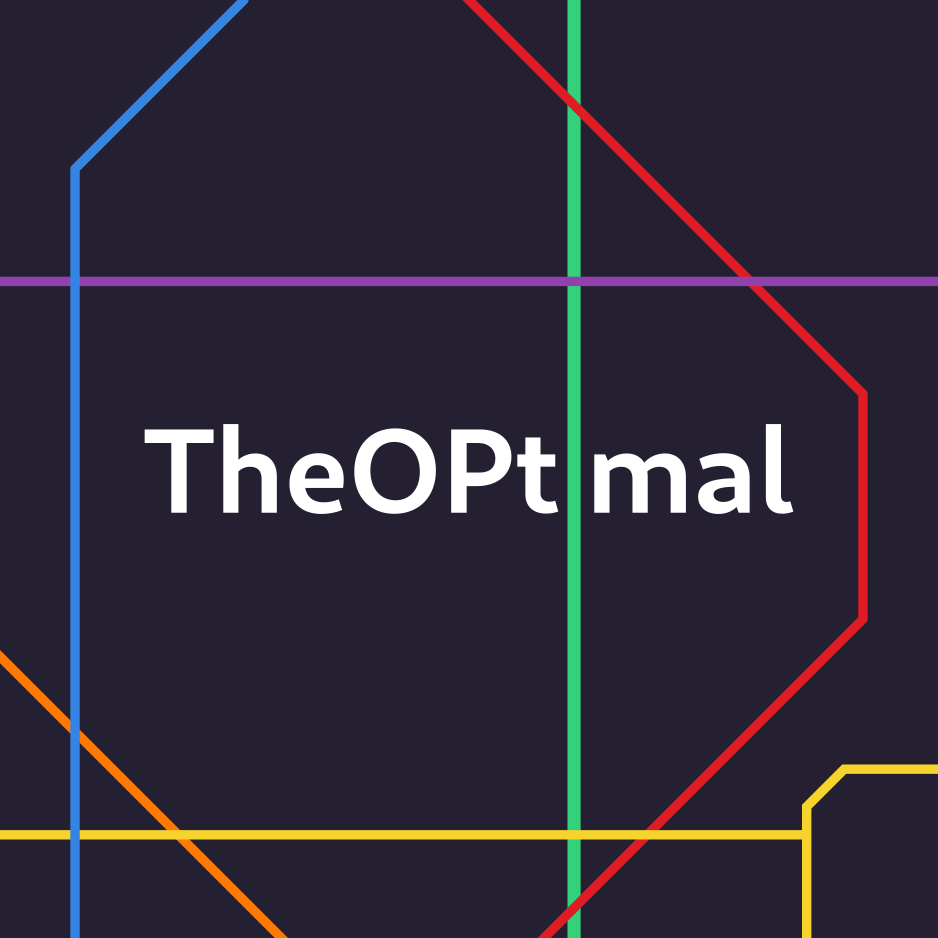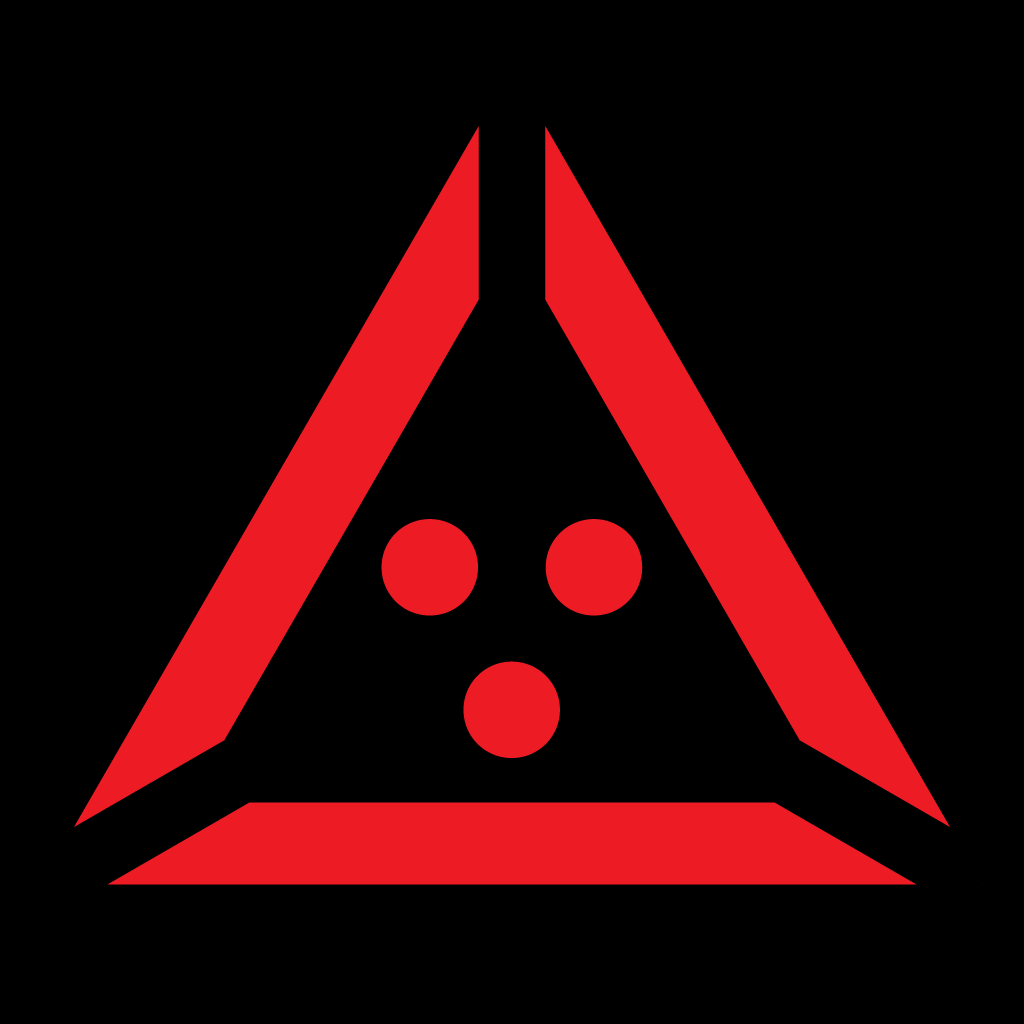deleted by creator
I’m sort of the opposite. I liked Joplin but found myself needing the features of Obsidian. I do know what you mean about Obsidian getting in the way. While it’s easy to start using it, there is a bit of a learning curve to using it well. And it can be a little quirky-annoying at times.
I think that’s one reason there are so many software offerings in this space. There’s a wide range of preferences when it comes to features vs simplicity.
For me, Obsidian is just about perfect without any extensions, but I’m also glad it is extensible if you need them. The configurability and customization, while using standard markup, and keeping the vault storage sizes small were the major pros for me.
Some other products I’ve tried in this space were just too much for me. Huge save files, overdone UXs, and proprietary formats. Joplin and Obsidian were both a breath of fresh air when I found them.
I switched to Joplin after dumping the fully enshittified Evernote earlier this year. Joplin’s entry and reading interface is straight up terrible, and I sorely miss the auto-ocr search from Evernote, but it’s overall layout basic enough to be usable.
Obsidian is great; I was a happy user for a couple years. But I recently switched to Logseq and I think I’m already liking it more, and it’s because of something Logseq doesn’t do.
Obsidian lets you write a full markdown file, so step one is deciding how to write something down. Is it a nested list? Or a table? Or headings and subheadings with paragraphs?
In Logseq, everything is a nested list. This feels like a limitation, but I’ve been preferring it. The decision is made for you: you’re going to jot this information down as a list. So then you just start writing it.
People often tout that Logseq is open source, and while that is great, IMO there is also a design consideration that makes it better. Pretty much any kind of information you want to write down can be represented as a nested list. Doing it that way keeps everything simple, consistent, and more searchable. (Logseq’s built-in querying feature seems to be more powerful than Obsidian’s Dataview plugin, although I can’t say much about it since I haven’t really played with it yet.)
Both Obsidian and Logseq save (kinda) standard markdown files, so if you spend a lot of time in a plain text editor, you can still use that. You don’t lose anything by editing a file in a separate editor – they will both parse and re-index the file next time you view it in the respective app.
Logseq is the only note taking system that has clicked with me, by lowering the mental overhead at the time of adding notes. I just throw it in there without any considerations while still feeling like it’s not going to get lost. Later I may revisit the day’s journal and add tags or connect other information, move a block into its own page, etc.
In Logseq, everything is a nested list. This feels like a limitation, but I’ve been preferring it. The decision is made for you: you’re going to jot this information down as a list. So then you just start writing it.
Oh - this sounds interesting.
Whenever I needed to jot down any notes I’ve been finding myself just writing plain .txt files with bullet points, and trying tools like Obsidian or TiddlyWiki I always ended up being overwhelmed with the amount of stuff I could do (and with all the customization options) that I never got around to actually writing things down. I’m definitely gonna look into how Logseq works.
(Although I have to say, their website does look a bit “too hype-y” for my liking. IDK how to explain it, just a gut feeling. Still, at least it’s FOSS so it can’t be too bad)
The website also put me off, I only kept at it because my partner was already using it and it looked solid enough. I even asked “Are you sure this is the logseq? It looks so…idk Marketing?”
But so far I just seem to use it a lot, and the more I use it the more useful I find it, especially after learning how to add tags (didn’t seem particularly obvious in the docs), and after finally getting into the flow of using Syncthing.
In Logseq, everything is a nested list. This feels like a limitation, but I’ve been preferring it. The decision is made for you: you’re going to jot this information down as a list. So then you just start writing it.
I really appreciate you posting this. I’m a long-time Obsidian user, and an Evernote user before that, and I never “got” Logseq. I just couldn’t understand what people saw in an app that didn’t let you “write” anything. I’ve tried to start using Logseq so many times and just given up because the interface made no sense.
Thanks to your comment I finally get it! I prefer to be using something open-source, so I’m going to give Logseq another go, now that I finally understand it, and see how that approach feels.
deleted by creator
Do you know cherryTree and if yes, how it compares to the two?
CherryTree is way clunkier, IMO, and has too many irrelevant options that get in the way, particularly around formatting. Obsidian is just markdown, so you don’t have the option of spending 15 minutes trying to figure out why code blocks are showing up as dark text on light background even though you’re in dark mode, which was my last experience in CherryTree. Looking and cross referencing documents is also super easy; I’m not sure if CherryTree even does that.
I have not heard of cherrytree before, I’ll check it out.
Kinda surprised I had to scroll this far down to find logseq. I’ve started using it in university and it’s been a life saver. I love the idea that everything is in these nested blocks, so I can just hammer down notes about whatever super quick with no setup or thinking about it. I just plunk my laptop down, open it up and go to town.
LogSeq also supports Org (which is what it was originally designed for), which is phenomenal for an Emacs user like me.
Trilium for a database and therefore faster method that is actually foss.
Obsidian is reaching market criticality so I’m expecting enshitification any time now.
Obsidian is reaching market criticality so I’m expecting enshitification any time now.
You could be right, but I’m not 100% sure of that. From the article:
Keeping the team small and spurning outside investment is Obsidian’s way of avoiding incentives that might lead the company astray.
If they can stick to that, they can avoid going downhill. The main driver for enshittification is big shareholders that want the company to keep growing – shareholders don’t care about stable profitability, they need growth for their ownership stake to increase in value. If Obsidian is profitable now and they’re fine with just keeping it that way, they can make it work.
The driver of enshittification is extracting money from your user base and investors alike. Lacking one doesn’t stop it.
If I was going to trust obsidian, their code would be fully foss. Since it isn’t, there is nothing future proofing my notes in their software. Might as well switch now to something which largely works better and is more feature rich.
Might as well switch now to something which largely works better and is more feature rich.
Which is relative to personal taste and needs.
If I was going to trust obsidian, their code would be fully foss.
I definitely agree that I wish it was fully foss, but i also think it is a far better option than notion, onenote, etc for most people (as long as it meets their needs and preferences) since with obsidian you do actually own your data and you don’t need to pay unless you want their sync.
Since it isn’t, there is nothing future proofing my notes in their software.
Even if, worst case, Obsidian enshitifies, all the notes are markdown or json (json for config and things that don’t work in markdown, but the community and the devs work hard to keep that to a minimum) so you can still access your stuff in any text editor and it will be fairly easy to get the important data migrated into anything else. (I often use vs code to manage my notes, for instance, esp for big find and replace or re-org tasks) Even the non-standard markdown from obsidian and the most popular plugins reads well and could fairly easily be replicated with remarked or other markdown libraries. In this way, i think Obsidians approach is far superior to a tool which uses a database to store its data, since a database would require some effort to use standalone, or some work to migrate it to another tool or some sort of minimal client interface.
By its design, Obsidian could also be replaced by reverse engineering their api. If obsidian takes the dark path, we will probably see a foss community grow from the plugin dev community to replace it and be as compatible with plugins as possible, even if its just the basic text and display components. Tbh, it could totally be a vs code plugin, an emacs mode, [insert any text editor with plugins here]… thats how portable the data is. The obsidian devs know this, and they are intentional about staying this way. A shift in attitude here would be noticed by the community very quickly.
Which is relative to personal taste and needs.
Everything about this discussion is.
far better option than notion, onenote, etc for most people
OK.
be fairly easy to get the important data migrated into anything else.
Why bother when I can do it now with the better option rather than in a couple years with several thousand notes?
Also it should be noted that peculiarities about how obsidian works makes transfers non trivial. Individual notes are fine, file structures not as much, but it’s minor.
Trilium has a pretty robust export system last I checked. Not rally worried about that, meanwhile I get the massive speed upgrades and stability associated with a database.
Sure it could be reverse engineered… Or just use the software that’s already basically there…
You’re doing that thing where someone starts going to bat and listing off this that or this other thing to rationalize their own choice or rationalize the choice for others.
I’ve used obsidian for years. I switched to trilium for reasons I stated above. Unless obsidian goes fully foss, and gets way way more stable, i’ll be using the genuinely better choice, thanks though.
I have not explored Trillium enough, but from what I know, it seems to be an excellent choice and worthy of mention and advocacy. I did not say that Trillium was bad.
Unless obsidian goes fully foss, and gets way way more stable, i’ll be using the genuinely better choice, thanks though.
I’m glad it’s a better choice for you! Replying to you doesn’t mean I was saying your choice was incorrect for you or others, merely that I wanted to discuss in context of your comment. Apologies if you read that from my response. I do not think I can declare a genuinely better choice. In my opinion, the most important thing with note-taking is whether you keep returning to do it and can easily find past notes.
You’re doing that thing where someone starts going to bat and listing off this that or this other thing to rationalize their own choice or rationalize the choice for others.
Ok? I don’t recall saying Obsidian was THE choice, nor that your reasons were incorrect, so I don’t know why you’re casting me in that role. Generally I lean towards self-hosting and foss options for the reasons you describe, but this is an instance where I calculated differently, and I just want to provide context that, compared to other proprietary options, Obsidian is way less a concern. I’ve personally gone down rabbit holes with foss alternatives because i’ve been overly concerned about things and ended up not being productive. I’ve also chosen foss tools before that I thought would be safe or easy to migrate out of, and then ended up having a terrible time anyway when the day came that it became abandonware or a new maintainer took it in a different direction.
Perhaps you are doing that thing where you forget that not everyone can easily use a fully foss option and that not everyone can reliably install a tool from github in the event it isn’t available on an app store or via an installer? (I’m certainly guilty of this sometimes myself)
Even for a tool like Trillium, while it wouldn’t enshitify the same way a proprietary tool could, it could also just be abandoned, no forks could arise, and someone without a ton of self-hosting/compiling/cli-based install troubleshooting experience would be in just as bad a situation for migrating or going elsewhere. Even right now, Trillium is technically unsupported on macOS, so it’s not a great option for some out the gate. (Nor does that make Obsidian automatically better)
I didn’t say everyone should necessarily use trilium. I described my rationale pretty plainly. Trilium can be transformed into md files trivially, if it gets abandoned, any users will be fine.
Trilium is literally available as an installer.
Use whatever you want. I’m not really here to describe the entire feature set of trilium for people in a play by play. Go look at the features, give it a try, or don’t, im not about to place massive amounts of personally produced information in software I can’t fully trust though.
Linking in trillium notes is PITA.
How do you work efficiently? Trillium is much more friction I felt when testing it out.
I agree that trilium could use more worth on linking efficiently. It’s no various complements. I don’t really have a method I just deal with it, sorry to disappoint.
But what is your workflow then?
Just curious because I can see trillium notes as worthfully when really creating sophisticated notes, like finished documentation.
But for working with small/atomic/draft notes the workflow is just too much friction for me to use it as a tool despite documenting past stuff.
It’s completely markdown which is future-proof and easily portable to other software
Or just… Not waste my time and use the better alternative now which has no risk of enshittifying.
But Trillium is not plain-text Markdown, so you’re comparing apples to oranges. They’re completely different approaches at their most base level.
Having been through the enshitification of Obsidian, it was important to me and many others to be not beholden to any vendor’s file system. Trilium notes require Trilium to be instantly usable. My notes are useful and usable in Obsidian, Logseq, VSCode, and others, because they use plaintext Markdown files.
They are functionally and aesthetically twins. Besides obsidian isn’t even actually markdown, it uses its own linking system. Either way this is just a silly assertion to make.
this is just a silly assertion to make.
It’s the most critical, most basic factor in determining what software to choose. I am specifically using software that works on plain-text Markdown files for many reasons, least of all that I need other software to be able to interact with those files. You can’t do that with Trilium.
Secondly, Obsidian does not use its own linking system, it supports both the widely used Wikilinks system and the DaringFireball/CommonMark markdown system.
Come on. At least have knowledge about the software you are trying to criticise.
I’ve recently switched from Notion to Obsidian (almost anyway). But I still have to find a good way to sync. I tried nextcloud, but I couldn’t get two way sync to work on mobile. I feel like €10,- a month for just sync is a bit much, and it (partly) defeats the idea of “the files are mine”.
I wish the official sync software was available for self hosting (ie as a Docker container). Maybe even against a one time fee?
What solutions do others here use for syncing?
I use syncthing, it is great for folder syncthing between multiple devices and no “server” needed
SyncThing is fantastic; I use it for Obsidian files and also for password manager databases.
I used to use syncthing but got annoyed by it drawing sooooo much battery from my android phone. Tried the fork and got it down a bit but kt was just too much in the end.
Pros:
-
bullet proof
-
Simple
-
FOSS
-
Selfhosted
Cons:
-
password/secrets manager nearly required to setup new devices
-
fails to make my morning coffee
Amazing, sync has been holding me back from adopting Obsidian. I’ve been tooling around with Nextcloud Notes/Quillpad thus far and while it works, it has its limits - especially since I like to link my notes to one another. This might actually be the thing that finally gets me to switch. Thank you for sharing.
Is this better than syncthing?
A thousand times. And I say that as a fan of Syncthing, I use it for half a dozen other use cases.
-
I just keep my vault in Dropbox and use Dropbox sync for Android to keep it working on my phone.
If you’re in the Apple ecosystem, you can toss your vault into iCloud Drive. If you’re technically proficient (and brave) you can write a cron to sync into whichever service you want via a local machine.
In addition to iCloud, I have a one-way sync (rsync) which functions as a poor man’s backup to get all my files into Dropbox; lots of stern warnings from Obsidian not to use Dropbox.
Syncthing. Works really good for paying nothing.
Obsidian and Syncthing should work together in theory, though I haven’t tried them.
I keep the vault in Nextcloud, and use Nextcloud notes for any other platform than desktop. For the most part it’s working pretty great.
I used syncthing for a while. Then tried github with mostly terrible results. Now i’m back on syncthing. It involves a little bit of setup, but i mostly forget about it now. It just works.
My sync setup, working perfectly, and using Obsidian on all 3 devices almost daily. YMMV.
-
Desktop (Mac): Google Drive
-
Chromebook (installed as Linux app): Google Drive
-
Phone (Android): AutoSync for Google Drive. Bought paid version just to support them, don’t think it was necessary. $5, got to spend my Google Play Credit 😊👍
-
They make some great RPGs ;P
Literally what I thought when I first saw the headline.
I love it, but I wish it were open source. I have since switched to LogSeq, and now I’m even trying out TiddlyWiki.
Oh boy. Weve all been there.
Stay hydrated.
I’m just switching from TiddlyWiki to Obsidian lol. Have not looked at Logseq though.
I downloaded obsidian, but I haven’t used it yet because I’m intimidated and don’t know where to start. ¯\_(ツ)_/¯
Same for me. I got some plugins too, people say they’re a must, but they have their own tutorials almost. But one day I’ll try it
You can use without plugins as well, they are not a must. I’ve been using Obsidian for years just for it’s inter-connected markdown references. Kind of like a wiki, I’m just taking markdown notes and sometimes create a link to another related note. Also, good at handling attachments and embeds. I haven’t used anything else (maybe tags nowadays… But that’s it) Thing is, if you like markdown then you should give it a go.
Nice app, like the idea of it being just plain text, but will stick to one note myself. The synch service is a must for me, and don’t want to pay for another service, when onenote and onedrive synch all that I need.
An interesting app nevertheless and am sure will suit many users.
There’s lots of alternate, free and open source syncing solutions. I use syncthing myself.
Like another person said, many ways to sync. I use Resilio personally and love it.
Try Notion. I changed from OneNote to it and don’t regret it.
100% agree that Notion is fantastic compared to OneNote. I also switched back in 2018.
Unfortunately, their mobile app is still fairly sub-par, their data format is proprietary and not markdown, and it is only slightly cheaper than Obsidian Sync. Also, their integration system has basically gone nowhere. Which sucks because it could be good. I also have lost data on numerous occasions due to their sync system and their official policy is “oops”. In that respect, OneNote is better.
I used Notion for about 5 years before switching to Obsidian recently. Notion was far better than anything id used and generally it is a good tool, but i also was never able to make notion work as well for me as Obsidian, esp. in a way that i optimistically keep information in it. Notion often was just enough effort (esp when on the go with mobile) that i just simply could never use it to its full potential.
However, obsidian, imo, does require some plugins to meet my needs. But i think this is a good thing. Projects basically does everything i like about Notions databases. Dataview takes care of database views.
deleted by creator
Joplin user here. What does obsidian have that I might want? I remember briefly trying it years ago and disliking it.
Joplin stores its files inside a database. Obsidian stores all notes as individual plaintext Markdown files.
In the first instance, that’s clearly more future-proof and robust - your notes are immediately available in any application without a layer of abstraction. You can’t have a single file corrupt and destroy all your notes.
I vastly prefer it for that reason. I want to know these notes are still going to work fine in 10 years, and be easily accessible.
I use Joplin for a simple notes app mostly for my phone but I do have it on my desktop and sync. What I do not use it for is my desktop notes collection which is a several thousand notes pages some quite big. I use Zim for that. It is a desktop Wiki.
I do not use Obsidian but it seems like knowledge base and linking is what people rave about. These are the ways in which I use Zim for example.
Write 4000 notes
Get a new device
Sync
Die waiting
I do miss joplin, but not cuz it looked good or cuz it was good at syncing
Looks like Obsidian’s sync is $8/mo and is a bit messy to sync otherwise, if sharing between Android and Windows. Not a fan of that at all. Joplin sync just works.
Therns an addon that lets you use dropbox, oneD, aws3, or custom
I enjoy using Obsidian, mostly because it’s faster than Notion, and it’s one of the few Notion alternatives that has good and fast table editing support.
Better table editing than many other markdown editors, but I wouldn’t call it very good for a note taking app.
May I offer that it really depends on your note-taking style? I’ve been using it since July having come from linear note-taking on Cornell NTS. It’s way faster and much more interlocked once you get past the slight learning curve.
Been on a Notesnook kick myself
I’d love to get into using Obsidian but it overwhelms me and freaks me out and also I just don’t know how to best utilize it for my personal work cases…I.e, how to blend professional/personal/creative uses into one all in app experience with Obsidian.
Check out this plugin for it!
It’s goal is to lower the barrier to entry for obsidian substantially.
As for different use cases, you can create different “vaults” for different applications. For example, I have a vault for work, and a vault for personal. They’re basically just different folders on your computer, but it helps keep differentiation.
I use it to keep track of my dinosaur breeding on ark survival evolved
I love the idea of it, but it hasn’t clicked yet. It never occurs to me to even tag things in order to leverage my notes as a mind map/second brain.
The absence of a clean means of using it from multiple devices and syncing between them without their cloud service is kind of disappointing. The git community plugin is godawful to set up on mobile/tablet, something native that handles git behind the scenes would be excellent.
Ultimately, what I’d like is obsidian but with the interface of confluence.



















